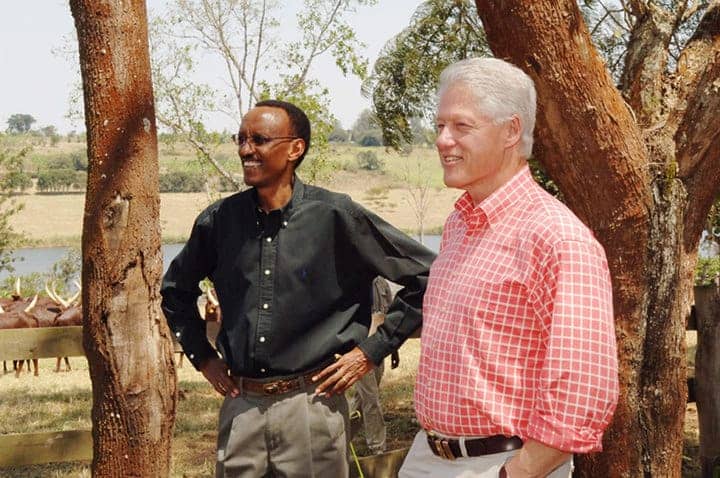Sunday, October 25, 2015
things fall apart
By
CNu
at
October 25, 2015
0
comments
![]()
Labels: doesn't end well , professional and managerial frauds , shameless
Sunday, October 11, 2015
overseer execution of tamir rice was reasonable?
By
CNu
at
October 11, 2015
0
comments
![]()
Labels: doesn't end well , necropolitics , Rule of Law , shameless
Wednesday, September 30, 2015
the neverending necropolitical fruits of bitter lake...,
By
CNu
at
September 30, 2015
0
comments
![]()
Labels: Living Memory , medieval , necropolitics , shameless , Tard Bidnis , wikileaks wednesday
Monday, July 20, 2015
Friday, June 19, 2015
evangelicals centered in belief reject authentic christians and everyone else on global warming....,
By
CNu
at
June 19, 2015
21
comments
![]()
Labels: Bibtardism , not-seeism , shameless
Tuesday, January 13, 2015
necropolitics: freedom fries structure, meaning, self-worth and dignity...,
By
CNu
at
January 13, 2015
6
comments
![]()
Labels: Ass Clownery , doesn't end well , niggerization , not a good look , shameless
Monday, December 22, 2014
necropolitics: the flower of american womanhood revealed (that was quick)
By
CNu
at
December 22, 2014
2
comments
![]()
Labels: point source , psychopathocracy , shameless
Saturday, May 17, 2014
monsters get fat cannibalizing tender young black children - and afrodemia is silent...,
 |
| Monster leans in to bite hapless children |
Following a May 12, Detroit News report on Gov. Snyder’s state-created experimental district exposing excess spending by the cash-strapped district, Johnson said, “Spending hundreds of thousands of dollars on things like personal chauffeurs and new IKEA furniture, while kids go to schools without heat or air conditioning, shows Republican Gov. Rick Snyder’s risky school takeover district is continuing to fail our kids.”
The report revealed the EAA staff spent nearly $240,000 on travel, gas for Chancellor John Covington’s personal chauffeur and IKEA furniture, since 2010.
“This waste and abuse of power is exactly why the EAA is opposed by members of the state Board of Education, current and former teachers in the district, and professional educators all over our state and country,” Johnson said in a recently released statement. “Michigan schools need more leaders in Lansing who will once again invest in our public schools, not force a school takeover meant to enrich Gov. Snyder’s friends and allies.”
Among the findings: $178,000 was spent on hotel and airfare traveling to 36 cities from April 2012 to February, while another $10,000 was spent on gas for Covington’s chauffeured car, $25,000 for IKEA furniture for Covington’s office and $8,000 combined at Amazon.com, Wal-Mart, Sam’s Club, Meijer, Home Depot and Lowe’s, according to the report.
The EAA came under criticism last week when a video went viral showing a teacher using a broom to beat back one student fighting with another at Pershing High. The EAA promptly fired the teacher, although, as reported here exclusively, (“EAA teacher is collateral damage.”) the student initiating the fight had been improperly readmitted to school by the principal, who came from Seattle after being dismissed there. The teacher has since been reinstated.
Detroit parents and community have battled against the EAA since it was created with 15 DPS buildings and contents by former Emergency Manager Roy Roberts.
EAA enrollment fell this year as parents took children out of the failing district. In February, it was revealed through MEAP scores students in the EAA were performing at lower levels than when they entered the district.
When EAA Chancellor John Covington was superintendent of Kansas City Schools, the district lost its accreditation.
By
CNu
at
May 17, 2014
0
comments
![]()
Labels: Collapse Crime , parasitic , shameless
Wednesday, February 05, 2014
Chua say "bad culture" - Murray and dirtbags like him - say "bad genes"..,
By
CNu
at
February 05, 2014
0
comments
![]()
Labels: shameless , The Hardline , truth
Saturday, October 26, 2013
word is bond...,
From Silla-Labbum and Elani
Tell Puzur-Assur, Amua, and Assur-samsi:
Thirty years ago you left the city of Assur [one of the capitals of ancient Assyria, 250 or so miles north of Baghdad]. You have never made a deposit since, and we have not recovered one shekel of silver from you, but we have never made you feel bad about this. Our tablets have been going to you with caravan after caravan, but no report from you has ever come here. We have addressed claims to your father but we have not been claiming one shekel of your private silver. Please, do come back right away; should you be too busy with your business, deposit the silver for us. (Remember) we have never made you feel bad about this matter but we are now forced to appear, in your eyes, acting as gentlemen should not. Please, do come back right away or deposit the silver for us.
If not, we will send you a notice from the local ruler and the police, and thus put you to shame in the assembly of the merchants. You will also cease to be one of us.
By
CNu
at
October 26, 2013
0
comments
![]()
Labels: banksterism , presstitution , shameless
Saturday, August 24, 2013
breath straight kicking like cancer....,
By
CNu
at
August 24, 2013
0
comments
![]()
Labels: microcosmos , shameless , subliminal
Tuesday, July 16, 2013
hunger games usa
By
CNu
at
July 16, 2013
0
comments
![]()
Labels: parasitic , shameless , the wattles , theoconservatism
Monday, April 22, 2013
the invention of the land of israel
 guardian | In this second volume of his trilogy of Jewish studies, Sand explores how the 'Land of Israel' was invented, and debunks popular nationalist mythology. In 2009, Shlomo Sand published The Invention of the Jewish People,
in which he claimed that Jews have little in common with each other.
They had no common "ethnic" lineage owing to the high level of
conversion in antiquity. They had no common language, since Hebrew was
used only for prayer and was not even spoken at the time of Jesus.
Yiddish was, at most, the language of Ashkenazi Jews. So what is left to
unite them? Religion?
But religion does not make a people – think of Muslims and Catholics.
And most Jews are not religious. Zionism? But that is a political
position: one can be a Scot and not a Scottish nationalist. Besides, the
majority of Jews, including many Zionists, have not the slightest
intention of going "back" to the Holy Land, much preferring, and who can
blame them, to stay put in north London, or Brooklyn or wherever.
In other words, "Jewish People" is a political construct, an invention.
Now Sand tells us, in this second volume of what will be a trilogy, that
even the "Land of Israel" was invented. Guardian readers who happen to
be Jewish should brace themselves for the third volume: The Invention of the Secular Jew. All this takes considerable chutzpah.
guardian | In this second volume of his trilogy of Jewish studies, Sand explores how the 'Land of Israel' was invented, and debunks popular nationalist mythology. In 2009, Shlomo Sand published The Invention of the Jewish People,
in which he claimed that Jews have little in common with each other.
They had no common "ethnic" lineage owing to the high level of
conversion in antiquity. They had no common language, since Hebrew was
used only for prayer and was not even spoken at the time of Jesus.
Yiddish was, at most, the language of Ashkenazi Jews. So what is left to
unite them? Religion?
But religion does not make a people – think of Muslims and Catholics.
And most Jews are not religious. Zionism? But that is a political
position: one can be a Scot and not a Scottish nationalist. Besides, the
majority of Jews, including many Zionists, have not the slightest
intention of going "back" to the Holy Land, much preferring, and who can
blame them, to stay put in north London, or Brooklyn or wherever.
In other words, "Jewish People" is a political construct, an invention.
Now Sand tells us, in this second volume of what will be a trilogy, that
even the "Land of Israel" was invented. Guardian readers who happen to
be Jewish should brace themselves for the third volume: The Invention of the Secular Jew. All this takes considerable chutzpah.
By
CNu
at
April 22, 2013
0
comments
![]()
Labels: propaganda , shameless , The Great Game
Friday, January 25, 2013
racism is racism...,
By
CNu
at
January 25, 2013
1 comments
![]()
Labels: Collapse Crime , shameless , states rights
Monday, December 03, 2012
former assistant secretary of state for africa got some splainin to do...,
By
CNu
at
December 03, 2012
0
comments
![]()
Labels: FAIL , shameless , The Great Game
Tuesday, November 13, 2012
the cult of david petraeus...,
By
CNu
at
November 13, 2012
0
comments
![]()
Labels: propaganda , shameless , you used to be the man
Friday, June 08, 2012
transfer of the cost of the drug problem from the consuming to the producing countries
The most far-reaching and detailed analysis to date of the drug economy in any country – in this case, Colombia – shows that 2.6% of the total street value of cocaine produced remains within the country, while a staggering 97.4% of profits are reaped by criminal syndicates, and laundered by banks, in first-world consuming countries.
"The story of who makes the money from Colombian cocaine is a metaphor for the disproportionate burden placed in every way on 'producing' nations like Colombia as a result of the prohibition of drugs," said one of the authors of the study, Alejandro Gaviria, launching its English edition last week.
"Colombian society has suffered to almost no economic advantage from the drugs trade, while huge profits are made by criminal distribution networks in consuming countries, and recycled by banks which operate with nothing like the restrictions that Colombia's own banking system is subject to."
His co-author, Daniel Mejía, added: "The whole system operated by authorities in the consuming nations is based around going after the small guy, the weakest link in the chain, and never the big business or financial systems where the big money is."
The work, by the two economists at University of the Andes in Bogotá, is part of an initiative by the Colombian government to overhaul global drugs policy and focus on money laundering by the big banks in America and Europe, as well as social prevention of drug taking and consideration of options for de-criminalising some or all drugs.
The economists surveyed an entire range of economic, social and political facets of the drug wars that have ravaged Colombia. The conflict has now shifted, with deadly consequences, to Mexico and it is feared will spread imminently to central America. But the most shocking conclusion relates to what the authors call "the microeconomics of cocaine production" in their country.
Gaviria and Mejía estimate that the lowest possible street value (at $100 per gram, about £65) of "net cocaine, after interdiction" produced in Colombia during the year studied (2008) amounts to $300bn. But of that only $7.8bn remained in the country.
"It is a minuscule proportion of GDP," said Mejía, "which can impact disastrously on society and political life, but not on the Colombian economy. The economy for Colombian cocaine is outside Colombia."
Mejía told the Observer: "The way I try to put it is this: prohibition is a transfer of the cost of the drug problem from the consuming to the producing countries." Fist tap Dale.
By
CNu
at
June 08, 2012
0
comments
![]()
Labels: addiction , narcoterror , shameless
Sunday, December 25, 2011
now I know why I married you...,
By
CNu
at
December 25, 2011
1 comments
![]()
Labels: shameless , you used to be the man
I Don't See Taking Sides In This Intra-tribal Skirmish....,
Jessica Seinfeld, wife of Jerry Seinfeld, just donated $5,000 (more than anyone else) to the GoFundMe of the pro-Israel UCLA rally. At this ...
-
theatlantic | The Ku Klux Klan, Ronald Reagan, and, for most of its history, the NRA all worked to control guns. The Founding Fathers...
-
Video - John Marco Allegro in an interview with Van Kooten & De Bie. TSMATC | Describing the growth of the mushroom ( boletos), P...
-
Farmer Scrub | We've just completed one full year of weighing and recording everything we harvest from the yard. I've uploaded a s...







